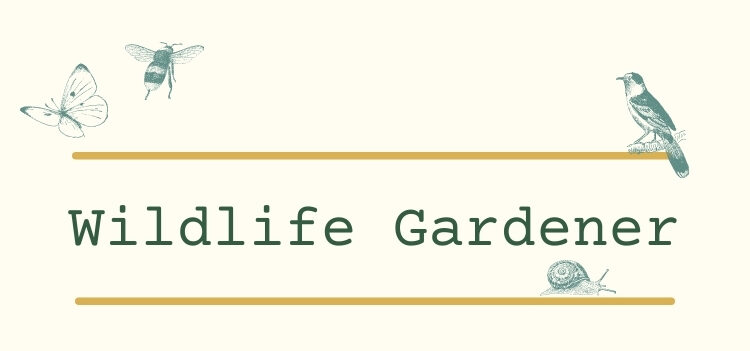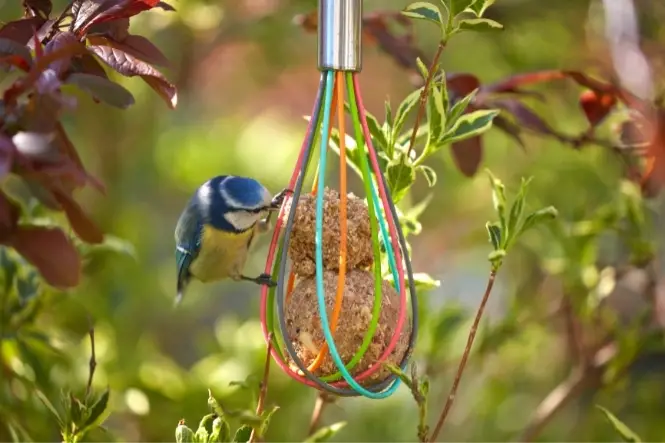Birds and other small mammals can often survive quite well on their own if we have created an ecologically diverse yet well-balanced environment for them to live in. However, because gardens are generally kept in a tidy, good condition and because of the use of pesticides and weedkillers, these have all had an impact upon reducing the amount of natural food available in our gardens so it can be a life saver to some creatures to supplement their own efforts with additional food which we can put out for them. That said, it’s important that we put out the right kind of food or we could end up doing them more harm than good.
Feeding Birds
Peanuts contain essential proteins and oils which birds need to survive. You should try to put a barrier of mesh between the peanuts and the birds so that they can’t take a whole peanut away which could end up choking young birds.
Sunflower hearts, as opposed to seeds, enable the birds to feed more quickly as they don’t have to remove the husk. You can also buy seed mixes but remember that it’s better to buy a good quality of mix as the cheaper varieties tend to contain a higher content of cereal which will simply attract the pigeons.
Fat balls and fat cakes are another favourite which you can make yourself and if you mix these with birdseed, the birds will think they’re getting a great treat.
They can also be given bread, broken into small pieces as the larger species will get it all if you only put out big chunks. The bread can be stale too which is a far better way of using it than simply throwing it in the bin.
And, if you can get hold of any live food, such as worms or other grubs, put them out in the morning when birds are at their most active. If you have a bird table, try to make sure there’s a roof over it. Not only will it help to keep the food dry, it prevents predators of small birds swooping down on them. Don’t offer food that is high in salt content and, although birds enjoy fresh coconut, don’t serve up the desiccated variety as this causes swelling in the gut which is fatal. Make sure that you put enough drinking water out for the birds too. Multiple feeding tables also reduces squabbling and ensures that everybody gets their fair share.
Feeding Hedgehogs
The best thing you can do to ensure that hedgehogs find food is to leave slugs alone as they are eaten by hedgehogs. However, a hedgehog will also eat both moist and dry dog food. You shouldn’t leave out milk or bread for hedgehogs as it causes diarrhoea but do ensure that there’s plenty of water available.
Feeding Badgers
Unless a set is nearby, you’re unlikely to attract badgers into your garden but if they do come by, you can leave out unsalted peanuts for them and you can even buy badger mixes. Root vegetables are also a favourite so, to avoid them digging yours up, leave out some carrots, fruit or some cooked potato. They’ll also eat hedgehogs too so you need to be aware of that if you’re trying to attract the latter into your garden.
Feeding Foxes
Foxes are quite opportunistic when it comes to food. They’re not fussy eaters and will happily devour most kitchen scraps and any discarded meat or vegetables you put out. If food is in short supply, they’ll even have a go at the food which has been put out for birds.
Feeding Squirrels
Squirrels will feast on a variety of nuts but make sure they’re unsalted. Peanuts, walnuts, almonds and hazelnuts are particular favourites but be careful about leaving whole ones out during the birds’ breeding season. Squirrels will also eat apples and it’s useful to leave out carrots which can help prevent calcium deficiency.
Other Small Mammals
If you have other small mammals visiting your garden, most will be happy to have their natural diet supplemented by bird seed. A note of caution, however, is that both rats and mice enjoy bird seed too.
If you do intend to feed the wildlife in your garden, remember to clean up regularly to avoid the potential of spreading disease and make sure that the food you’re giving will not harm any of the wildlife living in your garden.

